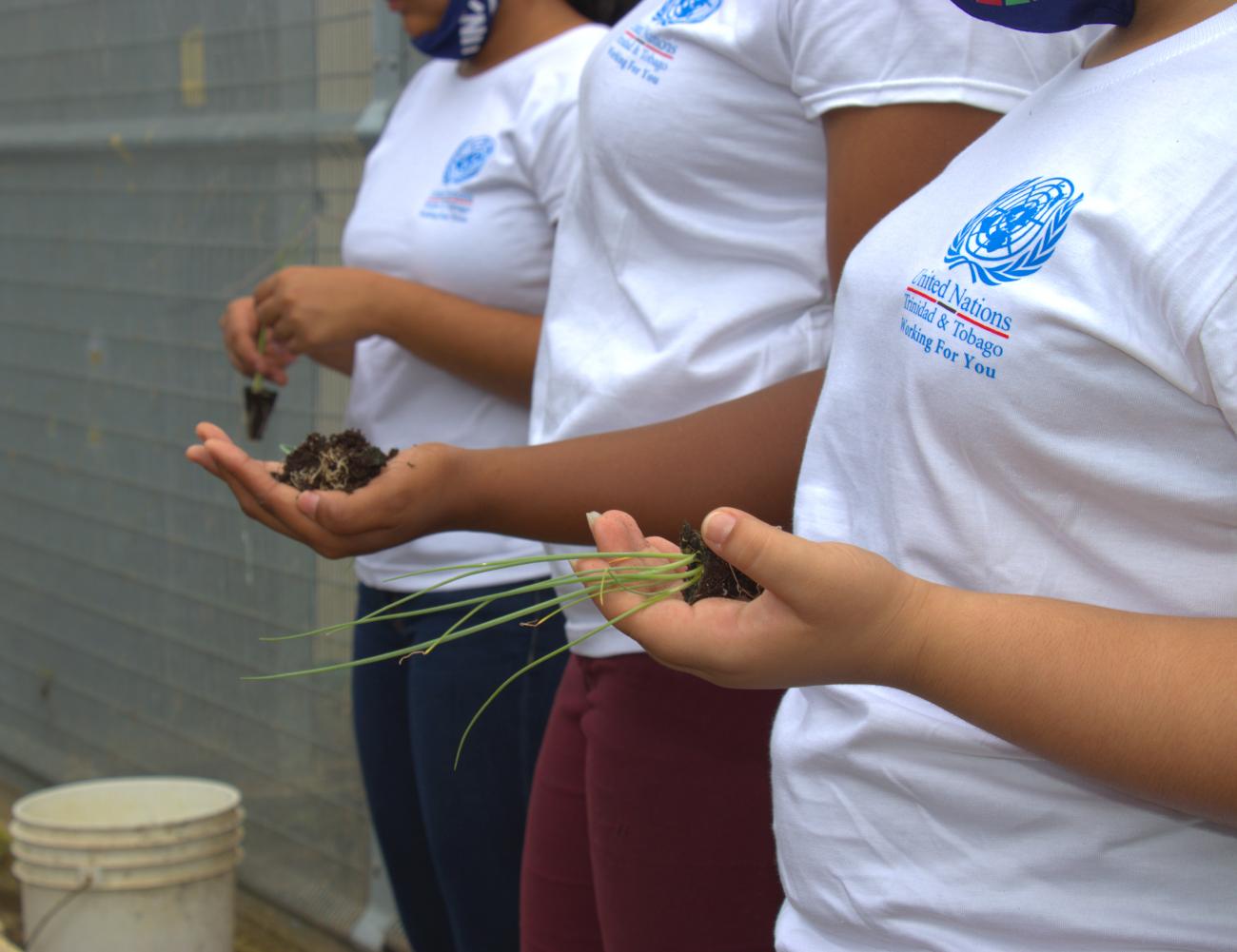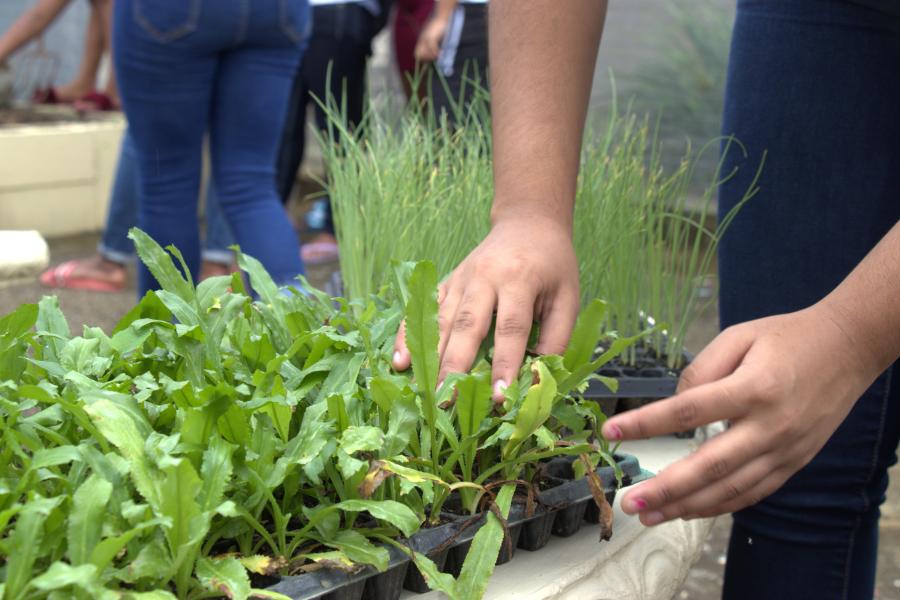Homegrown: Girls Learn the Value of Gardening

𝗦𝘁. 𝗝𝘂𝗱𝗲'𝘀 𝗚𝗶𝗿𝗹𝘀 𝗽𝗹𝗮𝗻𝘁 𝗰𝗼𝗺𝗺𝘂𝗻𝗶𝘁𝘆 𝗴𝗮𝗿𝗱𝗲𝗻 𝘁𝗼 𝗴𝗿𝗼𝘄 𝘁𝗵𝗲𝗶𝗿 𝗼𝘄𝗻 𝗵𝗲𝗿𝗯𝘀 𝗮𝗻𝗱 𝘀𝗲𝗮𝘀𝗼𝗻𝗶𝗻𝗴
"Look ah worm!" Nylah* squealed as she yanked her fingers out of the damp soil. The teenager had been clawing through a bed of dirt to create a space for her sprout of chadon beni, an essential part of Trinidad and Tobago's green seasoning. The discovery of an unexpected critter made her hesitant to keep digging.
"I not putting my hands back in there, nah!" she insisted, sparking laughter from the girls alongside her who were also preparing the soil for planting.
On this overcast Friday morning in the community of Belmont, just outside the capital city of Port-of-Spain, 30 teenage girls are getting a lesson in growing their own food. They live together in the St. Jude's Home for Girls, a state-run residential facility for adolescent girls.
Daily lunches and dinners require frequent purchases of chive, chadon beni, thyme and celery from the market, an expense the home's administrator is keen to cut back on.

"It would be great for us to get a community garden going," he said. "If we could make our own green seasoning and the girls could be involved in producing it, blending it and bottling it, that would make our operation more self-sufficient."
That mission of sustainability resonated with Alexandria Bachan, president of the Hummingbird House Foundation. Bachan frequently hosts fundraisers, workshops and events to support underprivileged women and young people. On August 26, her NGO hosted the 'Grow Your Own Food' workshop at St. Jude's Home to empower the girls to produce their own food and build their entrepreneurial skills.
"We know that kitchen gardens go a long way in helping families and communities to be self-reliant," Bachan said. "Our foundation really wanted to support these girls to get involved in their own food and nutrition and see the power of getting food from your garden to your table. If more people know how to feed themselves, we can make Trinidad and Tobago more food secure."
This effort to promote community agriculture is a commitment shared by the United Nations in Trinidad and Tobago as part of its support for Sustainable Development Goal 2: Zero Hunger.

The UN in T&T team supported the workshop by helping to coordinate donations of seedlings and gloves from the National Agricultural Marketing and Development Corporation (NAMDEVCO) and watering cans from CASA Fresh Limited, a supply and distribution company for fresh produce. The UN Resident Coordinator's Office (RCO) also donated t-shirts and masks for the workshop.
"The pandemic showed all of us the unpredictability of the global supply chain, and the volatility of the pricing market," said Faine Richards, Communications Officer at the RCO. "It gave us a chance to get back to something Trinidadians and Tobagonians always did well: grow fruits and vegetables in their gardens. Now that this push for home gardening is back in a big way, it helps young people to see that farming and agriculture is valuable even on the smallest scale, at the individual level. Together, those combined efforts can make us a more resilient nation."
*Name changed to protect identity. Photos featured in this piece were shot in such a way that the identities of the children were not revealed.



